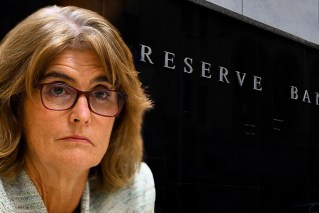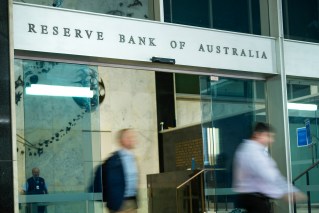Consumer watchdog turns up heat on banks over savings rates

The consumer watchdog is turning up the heat on banks over interest rates – especially those paid to savers as borrowers face surging costs.
The Australian Competition and Consumer Commission released an issues paper on the subject on Friday, calling on consumers and consumer organisations to submit their views to its inquiry.
The Reserve Bank of Australia has increased the cash rate target from 0.35 per cent to 3.60 per cent, since its run of 10 monthly rate rises began in May 2022, in an effort to quell surging inflation.
By comparison, financial website Rate City says rates have jumped at a similar level for less than 25 per cent of savings accounts.
The ACCC said that while banks had generally increased variable rate home loan interest rates in line with the official increases, rises in interest paid to customers had often been smaller or conditional.
“The vast majority of Australian consumers have at least one savings, transaction, term deposit or other retail deposit account, and collectively Australians hold over $1.45 trillion in retail deposit accounts,” ACCC chair Gina Cass-Gottlieb said.
“For many Australians, the interest earned on these accounts is an important source of income, and consumers are understandably keen to ensure they are receiving a good return on their savings.”
The ACCC launched its investigation into deposit products earlier in 2023, following a direction from Treasurer Jim Chalmers and amid concerns banks weren’t passing recent cash rate hikes on evenly to savings customers.
“This inquiry will closely examine how banks make decisions on interest rates, and any barriers consumers face in getting a better deal,” Ms Cass-Gottlieb said.
When the inquiry was launched, it was welcomed by Rate City.
“It’s great to see the government shine the spotlight on sub-standard savings accounts, however, customers don’t need to wait for an inquiry to find out if they’re on a dud rate,” research director Sally Tindall said.
“After each RBA hike, many banks have been picking and choosing which savings accounts get a boost, and which miss out.
“An ACCC inquiry will put pressure on banks to start hiking the rates on savings accounts that are trailing behind the competition.”
Friday’s escalation came as the Australian Banking Association said financial hardship remained below pre-pandemic levels but warned borrowers could suddenly reach a breaking point.
Chief executive Anna Bligh said rates of financial hardship, repossessions and defaults were still low compared to historical averages but banks had started recording a “slight uptick” in the 90-day default rate.
She said there were also signs of stress across unsecured lending, such as credit cards and personal loans, with Australian borrowers typically prioritising their mortgage repayments over other types of debt.
The last Australian Prudential Regulation Authority data on the 90-day default rate, which indicates three missed payments, fell slightly for both individuals and businesses in the December quarter.
But based on what banks were telling her, Ms Bligh said this rate was expected to lift modestly in the first three months of 2023.
She likened the build-up of financial stress to a rubber band.
“Everybody can stretch, you know, they can stretch for the next payment they can stretch for the next interest rate rise,” she said.
“Then something happens to the car, you know, and the elastic band breaks.”
She said banks were “very aware” that they might start seeing this at a “slightly bigger scale”.
Ms Bligh also said Australian banks were ready to help customers facing hardship and said repossessing properties was “an absolute last resort measure”.
“If they don’t get a repayment of a loan, that’s a bad commercial outcome for them,” she said.
She said keeping customers in their principal place of residence was the starting point for any hardship case.
“They’ll probably, to be honest, think a little bit differently about people who’ve got five or six investment properties – you know, that’s a different set of financial circumstances,” she said.
Ms Bligh said there were many ways banks could help people in trouble, such as deferring payments until unemployed people found work again or reducing the repayment amounts for a period.
While Ms Bligh did not comment directly on the ACCC’s investigation, she said deposit rates were as high as they had been for a decade.
“In the December quarter of 2022, authorised deposit institutions paid $18.8 billion in interest to deposit holders – more than they have paid in any single quarter since March 2012,” she said.
-with AAP








